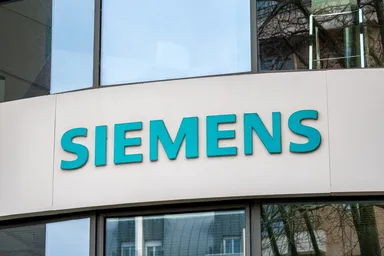Featured articles

DAX 40 continues to push to new highs
The DAX 40 sees six consecutive days of gains as the index pushes to new highs driven by risk-on sentiment
09:54, 12 January 2026

From Caracas to Wall Street: how the U.S.–Venezuela crisis could move markets
The start of the new year has marked a dramatic escalation in the United States’ confrontation with Venezuela.
08:53, 9 January 2026

Intel stock split: what it means for traders
Intel’s long history of stock splits reflects the company’s evolution through several major technology cycles, from early PC growth to data-centric expansion. With its most recent split taking place more than two decades ago, questions often arise about whether Intel may adjust its share structure again.
15:49, 19 December 2025

Siemens Energy stock forecast: Third-party price targets
Siemens Energy AG is a Germany-based energy technology company listed in Frankfurt, supplying equipment and services across power generation, grids and energy-transition projects. Explore third-party ENR price targets and technical analysis.
8 hours ago

BYD Company stock forecast: Third-party price targets
BYD Company is a Hong Kong–listed automotive manufacturer focused on electric vehicles and plug-in hybrids, with operations covering vehicle production, batteries and related technologies across domestic and overseas markets. Explore third-party 1211 price targets and technical analysis.
9 hours ago

Atresmedia Corporación de Medios de Comunicación stock forecast: Third-party price targets
Atresmedia is a Spanish-listed media group operating across free-to-air television, radio and digital content, with its shares traded on the Madrid exchange under the ticker A3M. Explore third-party A3M price targets and technical analysis.
10 hours ago

Telefónica stock forecast: Third-party price targets
Telefónica is a Spanish telecommunications company listed in Madrid, with operations across Europe and Latin America. Explore third-party TEF price targets and technical analysis.
15:10, 29 January 2026

Markets enter a correction phase as volatility rises and geopolitical risks re-emerge
Markets selloff across the board as investors de-risk and balance their portfolios heading into the weekend
11:58, 30 January 2026

Week Ahead: Markets seek confirmation as policy, earnings and geopolitics converge
Central banks meetings, earnings and geopolitics in focus next week as markets test the soft-landing narrative
10:52, 23 January 2026

US100 forecast: Third-party targets
The US Tech 100 reflects the performance of some of the largest non-financial companies listed on the Nasdaq and is often used as a reference point for movements in the US technology sector.
16:11, 19 January 2026

Trading the S&P 500 Following the Greenland Tariff Threat
Equity index takes a hit in the futures market down less than 1% denting short-term technicals, and in sentiment CoT speculators remain net short.
07:25, 19 January 2026

Trading Silver’s 35% Pullback
Volatile technical overview has given conformist breakout strategies the clear edge as of late, while in sentiment it remains a majority buy story.
09:06, 2 February 2026

Markets enter a correction phase as volatility rises and geopolitical risks re-emerge
Markets selloff across the board as investors de-risk and balance their portfolios heading into the weekend
11:58, 30 January 2026

Italgas stock forecast: Third-party price targets
Italgas is an Italian gas distribution company listed on the Borsa Italiana, operating regulated infrastructure networks across Italy and Greece, with its shares followed by analysts covering the European utilities sector. Explore IG price action, third-party price targets and technical analysis.
14:23, 27 January 2026

Gold and Silver forecast: Precious metals surge as confidence in the dollar frays
Gold and Silver surge into the new week as rising market uncertainty drives investors to seek refuge in precious metals.
10:20, 26 January 2026

BoE Meeting Preview: Balance of inflation risks and growth concerns
The Bank of England faces a delicate balancing act between inflation risks and growth concerns.
10:45, 2 February 2026

ECB Meeting Preview: markets look beyond the decision to policy signals
The European Central Bank is expected to keep rates unchanged this week as focus centres on Lagarde's press conference
10:42, 2 February 2026

EUR/USD forecast: Third-party price targets
Movements in the euro–US dollar exchange rate often reflect a shifting balance between economic data, central bank expectations and broader market conditions.
14:00, 14 January 2026

US dollar forecast: Third-party price targets
The US dollar’s performance often sits at the centre of broader market conversations, reflecting how investors are interpreting interest rates, economic data and policy direction at a given moment.
11:42, 14 January 2026

Trump coin price prediction: Third-party outlook
Trump coin (TRUMP) is a cryptocurrency token built on the Solana blockchain, launched in January 2025 and linked to President Donald Trump’s public profile and digital branding. Explore third-party TRUMP price targets and technical analysis.
17:09, 2 February 2026

Ripple price prediction: Third-party outlook
Ripple (XRP) is a cryptocurrency linked to the Ripple network, often analysed through market forecasts, technical indicators and broader crypto trends. Explore third-party XRP price targets and technical analysis.
15:02, 2 February 2026

Bitcoin price prediction: Third-party outlook
Bitcoin is a decentralised digital asset traded globally, with prices influenced by macroeconomic conditions, regulation and market participation. Explore third-party BTC price targets and technical analysis.
14:29, 2 February 2026

Pi Network price prediction: Third-party outlook
Pi Network has attracted attention as a developing cryptocurrency project, with its token price influenced by a combination of project-specific developments and broader digital-asset market conditions. Discover the latest, third-party PI crypto forecasts.
15:29, 19 January 2026
